Orchestral Manoeuvres in the Dark - Interview
by Dave Goodwin
published: 12 / 4 / 2015
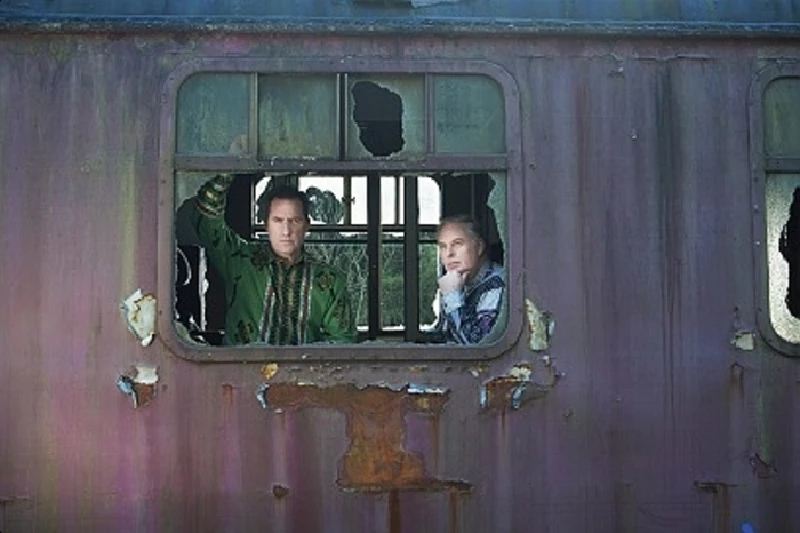
intro
Orchestral Manoeuvres in the Dark' front man Andy McCluskey speaks to Dave Goodwin about their 1984 fifth album 'Junk Culture', which has just been reissued in a new double CD edition
For this writer this day was a special day. As a kid growing up In Nottingham, I had fad after fad and confused myself, never mind my poor mum and dad. One minute I had a fishtail the size of the Market Square, and the next I Ska'd up with a Harrington, and the next I was in a pair of Bowies and a box jacket! But all the way through my teen years and for a long time after I followed Orchestral Manoeuvres in the Dark. They caught my imagination back then, and they still put the hairs on the back of my neck on end. I remember when I was bought my first serious hi-fi the first record I played was ‘Enola Gay’ because no other record I had at that time ( my collection was expanding rapidly ) sounded like that. I played their eponymous first album and second album ‘Organisation’ both to death. I went on to buy everything they ever did, and still now look out for the special promo or foreign copy that I haven't got. So, imagine my delight when our editor sent me a copy of a new expanded version of OMD's ‘Junk Culture’ to mark thirty years since the making of the original, and then imagine my delight of delights when he told me we had an interview slot with front man Andy McCluskey. Still recording to this day and still out on the road, OMD are to a lot of people the best pop band ever to come out of 80’s Britain. From the self-titled ‘Orchestral Manoeuvres in the Dark’ to ‘Organisation’ (both 1980), ‘Architecture and Morality’ (i981), ‘Dazzle Ships’ (1983), ‘Junk Culture’ (1984), ‘Crush’ (1985), ‘The Pacific Age’ (1986) and on through ‘Sugar Tax’ (1991) and the new albums , such as ‘History of Modern’ (2010) and ‘English Electric’, they have consistently churned out brilliantly catchy pop. The four lads from Liverpool, Andy McCluskey, Paul Humphreys, Martin Cooper and Malcolm Holmes, were at the forefront of a changing time when they released their first single, 1979's ‘Electricity.’ But It didn't go all to plan as they split In 1989 when the others went on to form the Listening Pool, leaving McCluskey to make the brilliant ‘Sugar Tax’, but by 1996 he had had enough and called It a day. Amazingly they all joined forces again in 2006, and by 2009 they were releasing new material and going back on the road again. I suffered a broken rib because of OMD. Eight or nine years ago I went to a festival at Knowsley Park on Merseyside, wearing an OMD-T-shirt. This gargantuan fellow charged the full length of the VIP enclosure at the front that we were in, and picked me up in a big bearhug and that's when I felt it go. Putting me down gently - and I am a big lad myself - I said, “What was that for?” to which he enthusiastically explained that I had the same t-shirt that he had. Marvellous! Thirty years after I walked the three miles back from town because I'd spent all my money on ‘Junk Culture’, I was actually talking to the man that made it! PB: Andy, can you believe it is more than thirty years since ‘Junk Culture’ first came out? AM: Well, it is actually the thirty-first anniversary coming up but It was planned to be a thirtieth anniversary re-master of it, which Is quite amazing when you consider Paul and I were both twenty-three and twenty-four at the time we wrote and made It. PB: The use of the Fairlight and the emulator on ‘Junk Culture’ was a big thing back then but they were expensive items. I was watching a programme the other night which you said you were constantly broke in the early days, so am I assuming correctly that with the advent of such machinery you had made it by the time ‘Junk Culture’ had came about? AM: (Laughs). Finally by 1983 the royalties for ‘Architecture and Morality’ were coming through and we were earning a bit of money, but it took a very long time. We weren't over massively rich though, and I remember I finally moved out of home when I twenty-three, having already had four gold albums! I remember moving into a house that cost me around £45,000, so it wasn't exactly a mansion. But yeah, we did buy a Fairlight, It was the beginning of us learning how to use computer programming. Prior to that, everything was all pretty much played by hand. PB: ‘Dazzle Ships’ wasn't particularly well-received in some quarters, but I absolutely loved it. What difference did the Fairlight make to ‘Junk Culture’ in comparison to ‘Dazzle Ships’? AM: ‘Dazzle Ships’ was a brilliant album! It's just that a lot of people found it a little too challenging because we didn't wrap up our experimental Ideas In the sort of sugar-coated melodies that most of ‘Architecture and Morality’ was wrapped in. Our record sales collapsed with the release of ‘Dazzle Ships’. There was an effort consciously on ‘Junk Culture’ to be slightly safer, but the songs we wrote weren't the average pop songs. They were really catchy and beautifully polished. There was some quite strange stuff on the ‘Junk Culture’ album. PB: I remember buying the album and taking it home and sticking it on the record player and thinking. “What's happening here? It’s got Calypso on it!' AM: (Laughs). It is funny you should say that because half of that was due to the Fairlight. All of a sudden we had literally a huge library of sound in these floppy discs we put Iito the computer. We were always about trying to do something that was new to us, and we had found a whole new palette of sound which was all rather shocking for other people. We were in the Caribbean working on this album for a lot of it, and we were absolutely fascinated by Soca music. Montserrat is the island where Arrow comes from. We were fans of his album ‘Soca Savage’, and so we thought, “Why not?” There are no rules and we had never followed any rules, so “Why not try some Soca music and try it with some electric reggae?” We were never really trying to write hits on ‘Junk Culture’. We were really still trying to break the rules, so what came out of it came as something of a shock even to us. PB: How did you end up coming to record some of it In Montserrat? AM: What had happened was that we got bored of working in our own studio. We had had a lot of problems when making ‘Dazzle Ships’. Wrongly, we thought that one of the problems was that we kept recording all of our records in the same place and that we were lacking inspiration in our own studio. So, we thought, “Hey, why don’t we go to some different places and meet different people and different geography and It'll be more inspiring?” so we started wandering around the world. We wrote in Inverness, we wrote In London, and then the record company said, “If you want to try something different, try Montserrat.” But, we didn't finish there. We worked In Belgium and we finally finished up In Holland, so we were all over the place! PB: It is intriguing that with working in all these different places that you got the album to sound as consistent as it does. AM: The consistency factor was there because there were the same people working on it. We were using the Fairlight and the Lindrum a fair bit, so that was consistent as well. Most of the instrumentation was basically the same. We would go from studio to studio carrying our equipment, but also taking with us stacks and stacks of two inch multi-track tapes around with us which we were adding to, subtracting and reworking on. We must have been working on that album for at least eight months in various different studios. It just went on and on. PB: And throughout it all you had had Brian Tench on board with you, didn’t you? AM: We really, really enjoyed working with Brian before on ‘Architecture and Morality’, so we asked him again. Generally when we worked we didn't really use a producer. We generally had one really good engineer. So, we asked Brian to be the engineer/producer for us. I think after we'd been to Montserrat we got to the point where we were getting worried that It wasn't coming together quickly enough, and I think because of that the record company persuaded us that we needed a name producer to come in with us to finish it off. We'd always liked David Bowie, so we asked if Tony Visconti would come in to help us and he did. He came to Hilversum in Holland and spent a few days with us, and listened to a few songs, and it was such a mess. We had verses for some of the songs on one tape and then choruses scattered about on others and our plan was to eventually edit all together, and he just looked at us and said “Look, I'll just write some brass parts for you and then I think you need to get the other guy In to sort it all out for you.” So, Brian came back in and mixed it all together for us, and it sounded great in the end! The thing is when you are working on something for eight months intensely it is very hard to stay objective about it. PB: Two of my favourite tracks, ‘Never Turn Away’ and ‘Love and Violence’, appear on ‘Junk Culture’. Neither of those involve Calypso. What brought you away from Calypso to write and record those in the midst of these sessions? AM: ‘Never Turn Away’ was written by Paul and sung by Paul, so I can't speak about that actual song too much. Paul does absolutely everything on it. There's always one song on each album where Paul does everything on his own and has the main vocals. The rest are either me and Paul together or me on my own. ‘Love and Violence’ though was originally built out of this aggressive drum sound shoved through gated reverb, so that it sounds explosive. It also involves that repeated brass riff. We worked in some of the lyrics from ‘’10 to 1’, another song which we had written and which appears on the expanded version of ‘Junk Culture’. We gradually built it up with all the other pieces to it. ‘Love and Violence’ is actually one of my favourite songs we've ever done! It is so aggressive and the lyrics are so hard that it really is a kick ass song! PB: On the second CD there are a few other tracks as well that you have raided the archives for. Do you have anything else hidden away? AM: There is, yeah, but you come to the point of where do you draw the line? There were a couple of complete instrumental half ideas, and we would have ended up filling up a third CD with things that really were the faintest and roughest of sketches. The die-hard fans would probably like some of them, but most people just wouldn't bother buying the third CD. There are a couple of versions of ‘Tesla Girls’. One of the earlier versions is on this CD, and there is a sort of mid version that we thought, “Well, we've already got one so won't bother with another version.” It's a difficult judgement call to make. We always get folk on our social media sites complaining, “Why don't you do this or that?” or “Why isn't this on a seven inch picture disc?” If you can't make all the people happy, then leave it where it is. The important thing is that it sounds great. The digital recordings in the 1980s were awful. The original CDs sound awful, and this one sounds much better because we went back to the master tapes and got a nice warm sound. There are five new tracks on there. There is three different versions of the originals, and two that no-one has even heard before. It has had us thinking that there is probably a lot more stuff on storage tapes that even we had forgotten about. PB: There were a plethora of bands making music with synth in the 1980s. What was it like for you making the music? What were you feeling and thinking at that time? AM: I think that ‘Junk Culture’ was the tipping point for the band In the 1980s. It was the first time we had had a Top 40 hit with ‘Locomotion‘ in America. We had changed our record company to A&M. When we were on Epic, our previous label there, we couldn't get arrested. Now we had American management, and they strongly wanted us to break Into America and so we did. We went on a world tour with ‘Junk Culture‘, and it took months and months. Then when we got back the management company was saying, “We want to get the next album out before Christmas because in the Christmas market you'll sell more,” and then our accountant said, “You haven't got any money left because you've gone around the world losing money on tour, and that last album you made just blew all the revenue from the ‘Architecture and Morality’ album because you went around the world again making it, you silly idiots. The record contract you signed in 1979 also gives you such poor royalties that for all the millions of records you have sold you earned pennies.” That was when we basically started to lose the plot. So then we just went and wrote and wrote, and the next ten songs we wrote then became the next album, ‘Crush’. So, in that sense ‘Junk Culture’ was the last really good album that we spent time on, until 1991 when we did the ‘Sugar Tax’ and then, of course, twenty years later with ‘The History of Modern’ and ‘English Electric’. The other albums were rushed because we had no money. We had to make a record because we were skint. By the time we had got to 1988 and we were thinking of releasing a best of album, we had sold 12 million albums and 15 million singles and we owed Virgin Records a million pounds! So, people think that ‘Crush’ and ‘The Pacific Age’, which followed it, were us trying to break America or copping out, and to some degree it was. As we were trying to break America, we were touring so often that we didn't have time to write music. No-one sits down consciously though and writes a bad song. We literally didn’t have the time to write anything better. So, ‘Junk Culture’ was the last great record we made until 1991. PB: To put you on the spot, would you say that ‘Junk Culture’ is your best album ever? AM: I suppose ‘Junk Culture ‘and ‘Sugar Tax’ were our two best pop albums. They were really well-executed pop albums. If I had to take two albums with me though, it would be ‘Architecture and Morality’ and ‘Dazzle Ships’. ‘Junk Culture’ is an amazing album, and it really is OMD flexing our muscles as great pop songwriters but not writing absolute rubbishy cheesy pop songs. We were writing songs about Interesting subjects using weird sounds and just trying to do something different. PB: Are you still enjoying playing live now as much as you did back then? AM Well, anyone that has ever come to see us live - not wanting to boast or anything – knows that we are brilliant. We still play brilliantly. We deliver just enough of the hits to keep the passing fans happy, and we always try to do some of the interesting old stuff that the die-hards like. We also have got two great new albums, and it is a testament to the new stuff that when we play tracks from them people don't just go to the bar! PB: You have this incredible energy when you are on stage. How do you maintain that even now thirty years on? AM: I had a contingency plan for when I got to old age, but I found that as soon as I get on stage and hear the music and see the crowd I'm away. Call It Shamanistic. I hate it when people call it dad dancing because no other dads can dance the way I do (Laughs)! PB: And final question. What is your favourite track on ‘Junk Culture’? AM: My favourite is ‘Love and Violence’. But on the new version as well is our favourite 'B' side which is called ‘The Avenue’ and which to me is a beautiful song. PB: Thank you.
Band Links:-
https://en-gb.facebook.com/omdofficial/http://www.omd.uk.com/
https://twitter.com/officialomd
https://www.youtube.com/user/OMDenglishelectric
https://plus.google.com/106385693133344956568
Picture Gallery:-
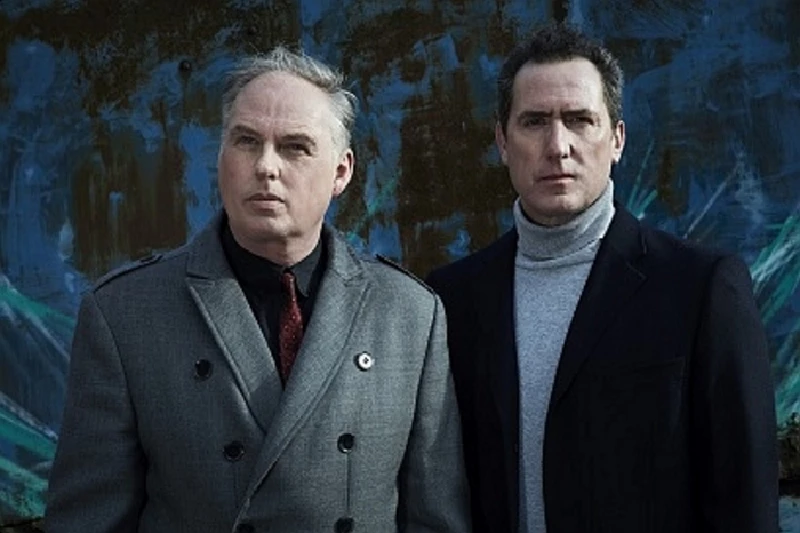
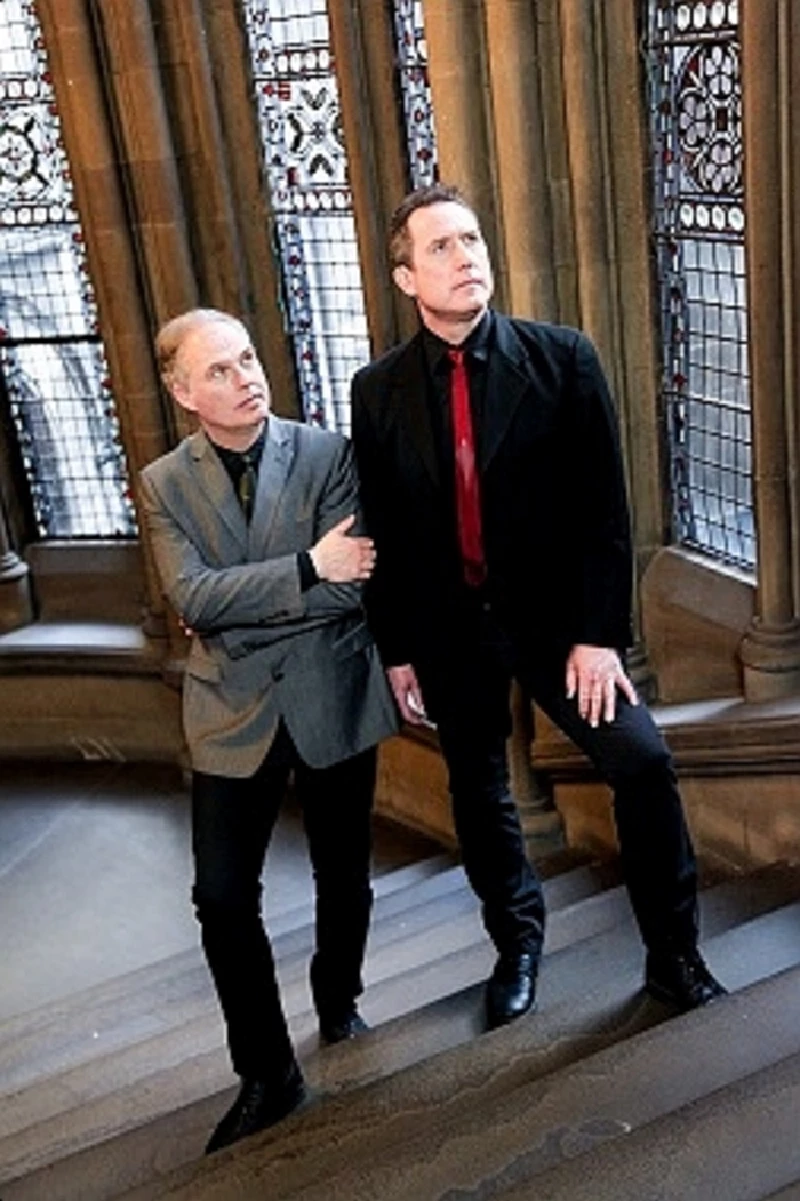
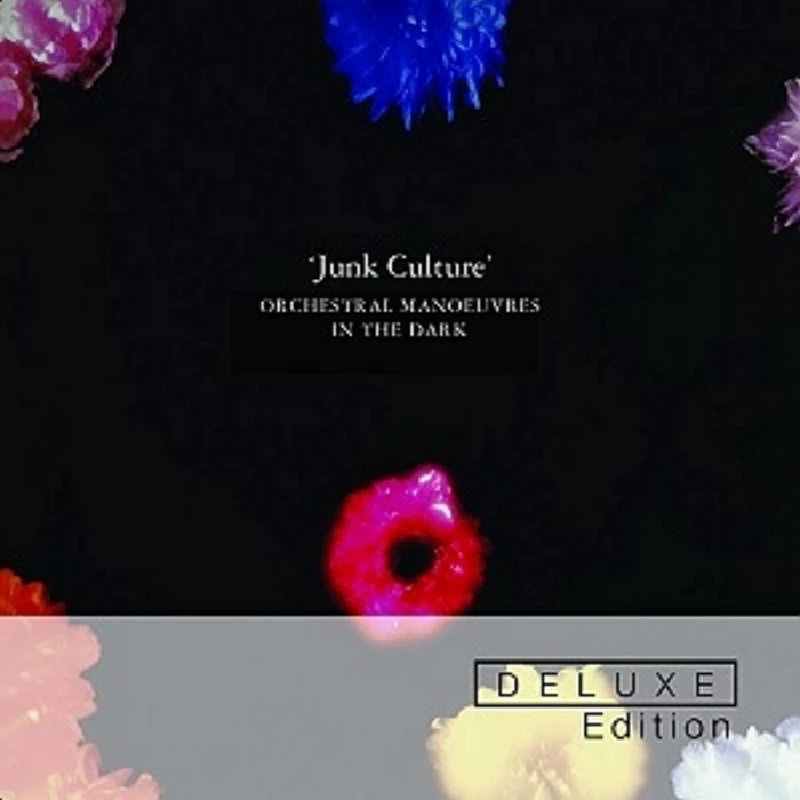
live reviews |
|
New Theatre, Oxford, 20/3/2024 |
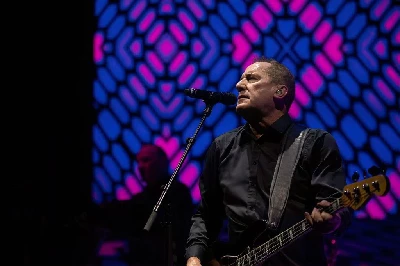
|
| Nick Dent-Robinson watches an electrifying set from seminal electro act Orchestral Manoeuvres in the Dark to promote their new 'Bauhaus Staircase' album. |
| Photoscapes 1 |
favourite album |
|
Junk Culture (2015) |

|
| Dave Goodwin reflects on Orchestral Manoeuvres in the Dark's 1984 fifth album 'Junk Culture', which has just been reissued in a double CD expanded edition |
features |
|
Ten Songs That Made Me Love... (2017) |
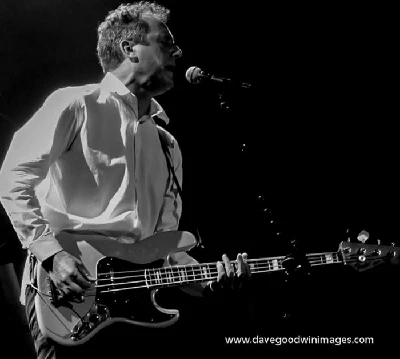
|
| In 'Ten Songs That Made Me Love...' Dave Goodwin reflects on ten of his favourite songs by influential 80's electronic act Orchestral Manoeuvres in the Dark |
| Vinyl Stories (2016) |
photography |
|
Photoscapes (2024) |
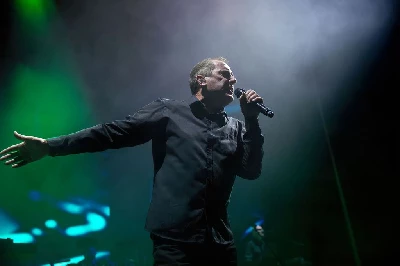
|
| Andrew Twambley takes photos of influential electro act Orchestral Manoeuvres in the Dark at the first of two gigs at the 02 Apollo in Manchester to promote their new album, 'Bauhaus Staircase'. |
| Photoscapes 2 (2018) |
soundcloud
reviews |
|
Live - Architecture and Morality and More (2013) |
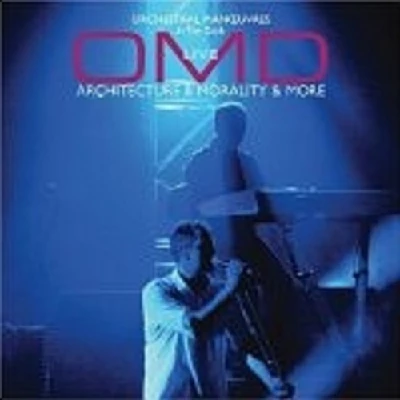
|
| Fantastic live album from Orchestral Manoeuvres in the Dark recorded in 2007 at a London show on an European tour in which they played all of their third album 'Architecture and Morality' plus many of their other hits |
most viewed articles
current edition
Spear Of Destiny - InterviewRobert Forster - Interview
Fiona Hutchings - Interview
When Rivers Meet - Waterfront, Norwich, 29/5/2025
Carl Ewens - David Bowie 1964 to 1982 On Track: Every Album, Every Song
Brian Wilson - Ten Songs That Made Me Love...
Chris Wade - Interview
Shrag - Huw Stephens Session 08.12.10 and Marc Riley Session 21.03.12
Pistol Daisys - Waterfront, Norwich, 29/5/2025
Credits - ARC, Liverpool, 17/5.2025
previous editions
Heavenly - P.U.N.K. Girl EPBoomtown Rats - Ten Songs That Made Me Love....
Barrie Barlow - Interview
Oasis - Oasis, Earl's Court, London, 1995
Manic Street Preachers - (Gig of a Lifetime) Millennium Stadium, Cardiff, December 1999
Dwina Gibb - Interview
Chuck Prophet - Ten Songs That Made Me Love...
Pixies - Ten Songs That Made Me Love...
David Paton - Magic: The David Paton Story
Sound - Interview with Bi Marshall Part 1
most viewed reviews
current edition
Peter Doolan - I Am a Tree Rooted to the Spot and a Snake Moves Around Me,in a CircleGarbage - Let All That We Imagine Be The Light
Vinny Peculiar - Things Too Long Left Unsaid
Little Simz - Lotus
John McKay - Sixes and #Sevens
Suzanne Vega - Flying With Angels
HAIM - I Quit
Morcheeba - Escape The Chaos
Vultures - Liz Kershaw Session 16.06.88
Billy Nomates - Metalhorse
Pennyblackmusic Regular Contributors
Adrian Janes
Amanda J. Window
Andrew Twambley
Anthony Dhanendran
Benjamin Howarth
Cila Warncke
Daniel Cressey
Darren Aston
Dastardly
Dave Goodwin
Denzil Watson
Dominic B. Simpson
Eoghan Lyng
Fiona Hutchings
Harry Sherriff
Helen Tipping
Jamie Rowland
John Clarkson
Julie Cruickshank
Kimberly Bright
Lisa Torem
Maarten Schiethart